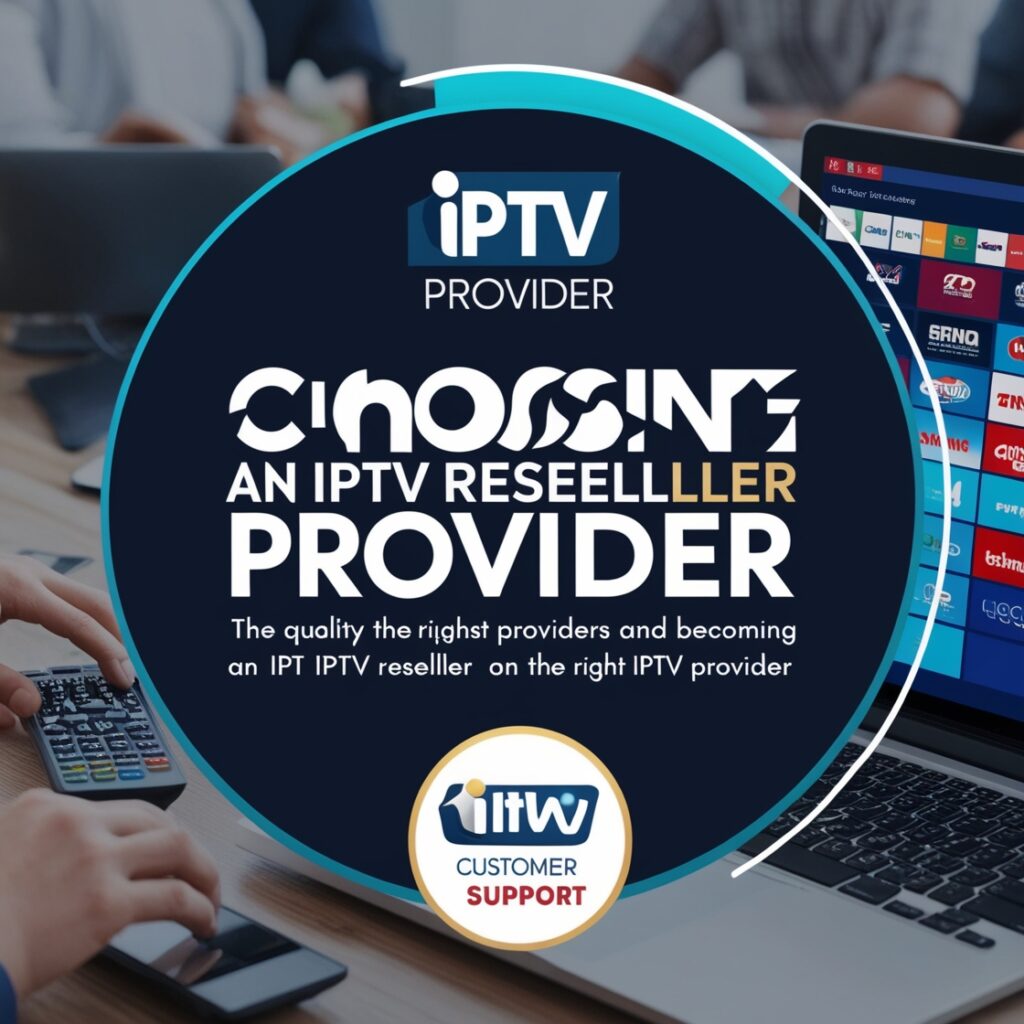Learn the key differences between IPTV providers and resellers. Discover which IPTV business model is right for you and how to maximize profits in the growing IPTV industry. Explore Roomtvs.com reseller programs for the best IPTV services in 2024

The world of IPTV (Internet Protocol Television) has rapidly expanded over the past decade, providing users with various ways to access TV channels and streaming services. Two of the most popular business models within this ecosystem are IPTV providers and IPTV resellers. For anyone looking to venture into the IPTV industry or simply understand its dynamics, it’s crucial to differentiate between these two roles. In this article, we will dive deep into the key differences, advantages, and business opportunities associated with IPTV providers and IPTV resellers.
Introduction to IPTV
Before we delve into the differences, let’s first understand IPTV. IPTV is a service that delivers television content via the internet instead of traditional satellite, cable, or terrestrial formats. It allows users to stream live TV channels, on-demand content, and other multimedia using devices like Smart TVs, smartphones, computers, and set-top boxes.
Many IPTV enthusiasts or budding entrepreneurs often find themselves confused when it comes to the roles of an IPTV provider versus an IPTV reseller. Let’s clarify this.
What is an IPTV Provider?
Definition
An IPTV provider is the backbone of the IPTV ecosystem. Providers are responsible for the overall service delivery, which includes sourcing, broadcasting, and distributing TV channels, movies, and other content. They create or manage the infrastructure required to offer IPTV services directly to consumers.
Core Responsibilities
- Content Sourcing: IPTV providers negotiate and acquire TV channels, movies, and other media content.
- Server Infrastructure: Providers manage large server farms that allow users to stream content smoothly. They ensure the service is reliable and has minimal downtime.
- Technical Support: The provider offers technical support and deals with potential issues related to streaming quality, server uptime, and customer queries.
- Customer Base: They sell IPTV subscriptions directly to customers and manage all aspects of their service.
Advantages of Being an IPTV Provider
- Full Control: IPTV providers have complete control over the service quality, server uptime, and customer experience.
- Higher Profits: Since providers are at the source of the IPTV service, their profit margins are higher compared to resellers.
- Scalability: They can manage thousands of users through robust infrastructure, making the business scalable.
Challenges
- High Initial Investment: Being a provider requires a significant upfront investment in servers, bandwidth, and licensing.
- Ongoing Maintenance: Providers need to continuously update and maintain their servers to ensure high-quality streaming and minimal downtime.
- Legal Complications: Depending on the country, IPTV providers may face legal hurdles related to content licensing and distribution rights.
What is an IPTV Reseller?
Definition
An IPTV reseller is an intermediary who sells IPTV services provided by a third-party IPTV provider. Resellers act as distributors and do not manage the infrastructure or servers. They are essentially buying services from the provider at a lower rate and then selling them to their customers for a profit.
Core Responsibilities
- Customer Acquisition: Resellers focus on marketing and acquiring new customers for the IPTV services they are selling.
- Account Management: Resellers create user accounts, manage subscriptions, and provide customer service related to the user’s account.
- Profit Margin: They earn money by selling subscriptions at a higher price than they purchase them from the provider.
Advantages of Being an IPTV Reseller
- Low Initial Investment: Compared to providers, resellers don’t need to invest in costly infrastructure like servers and bandwidth.
- Simplicity: Resellers can focus on marketing and customer acquisition, without needing to worry about technical issues like server maintenance.
- Flexibility: Resellers can sell subscriptions from multiple providers, giving them flexibility in terms of the services they offer.
- Fast to Start: Setting up as an IPTV reseller is quick, often requiring just a website, a marketing strategy, and a partnership with a provider.
Challenges
- Lower Profit Margins: Resellers buy services wholesale from providers, meaning their margins are smaller compared to being a provider.
- Limited Control: Resellers depend on the provider for service quality, and any technical issues the provider experiences will affect the reseller’s customers.
- Branding Restrictions: Often, resellers cannot brand the IPTV services as their own, and they are limited to using the provider’s branding.
Key Differences Between IPTV Providers and Resellers
1. Control Over Infrastructure
- IPTV Provider: Full control over servers, streaming quality, and service uptime.
- IPTV Reseller: No control over infrastructure. Relies on the provider for service delivery.
2. Customer Base
- IPTV Provider: Direct access to all customer data and full control over customer relationships.
- IPTV Reseller: Limited to the customer relationships established, but does not have access to back-end systems of the provider.
3. Investment and Costs
- IPTV Provider: High initial investment in infrastructure, bandwidth, and legal licensing.
- IPTV Reseller: Low investment; generally only involves purchasing a reseller account from a provider.
4. Profit Margins
- IPTV Provider: Higher profit margins since there are no middlemen involved.
- IPTV Reseller: Lower profit margins due to reselling the provider’s service at a markup.
5. Responsibilities
- IPTV Provider: Manages content sourcing, technical infrastructure, customer support, and legal compliance.
- IPTV Reseller: Primarily focuses on customer acquisition, account management, and front-end customer support.
How to Choose Between Being an IPTV Provider or Reseller?
If you’re contemplating entering the IPTV market, choosing between becoming an IPTV provider or reseller depends on your resources, goals, and technical expertise.
- Becoming an IPTV Provider: This is ideal for those with deep pockets, technical know-how, and a desire to have complete control over the business. Providers can scale their business, build brand recognition, and maximize profit potential.
- Becoming an IPTV Reseller: This is perfect for individuals or businesses looking to start with a lower investment and focus on sales and marketing. Reselling offers quicker setup and lower risk but comes with less control over the actual service.
Conclusion
Both IPTV providers and IPTV resellers play crucial roles in the IPTV ecosystem, but their responsibilities, control, and profit margins differ significantly. Providers manage the infrastructure and content, whereas resellers focus on marketing and sales. Depending on your business goals, you can choose the role that aligns with your resources and expertise. Whichever path you choose, the demand for IPTV services is growing, making it a lucrative opportunity for those looking to enter the market. If you’re ready to explore your options, visit Roomtvs.com to learn more about their IPTV reseller programs and top-tier IPTV services.


